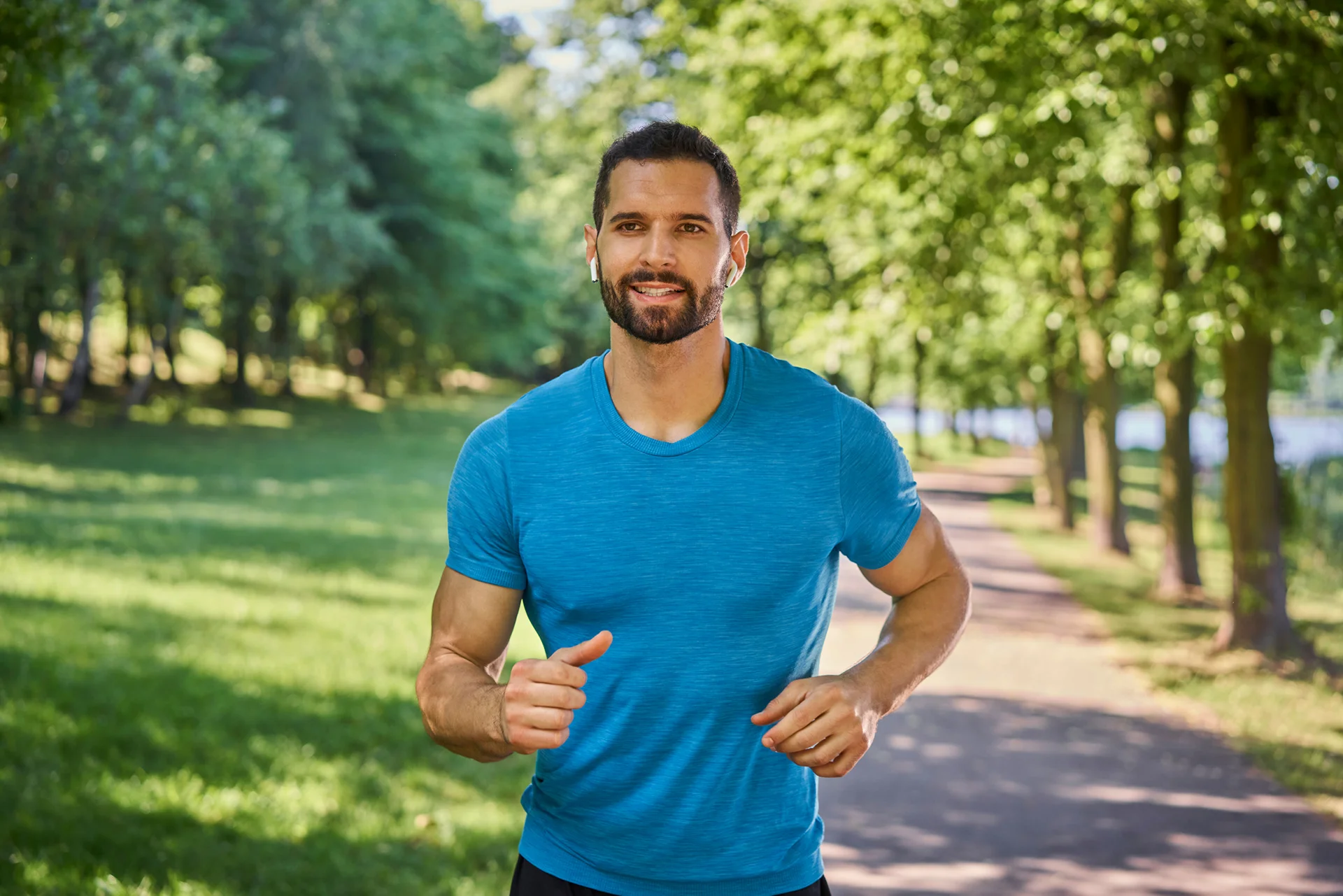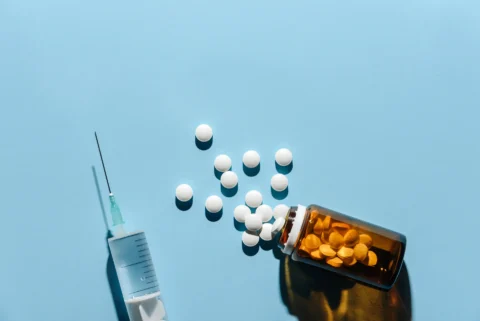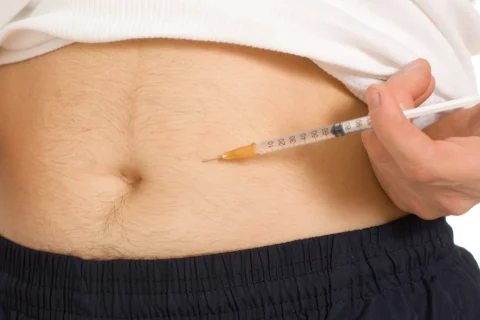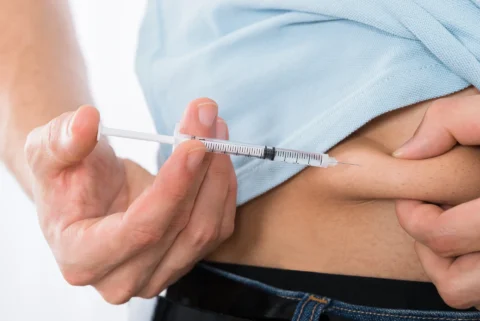Discover How Strategic HCG Use Can Restore Testosterone, Virility, and Vitality
If low testosterone is diminishing your energy, virility, and overall well-being, innovative medical solutions like hCG may re-ignite your inner vital force.
In this guide, Ethos Spa explores how strategic use of hCG under medical supervision can help restore youthful hormonal balance and rediscover your peak masculine performance. Read on to learn how HCG could re-energize your manhood.
What Benefits Do Men Experience from the hCG Hormone?

The key benefits men experience from HCG hormone are increased testosterone production, enhanced libido, and fertility, reversal of testicular atrophy, accelerated fat loss, and overall vitality improvements.
Enhanced Sexual Function and Fertility
hCG can significantly improve two key aspects of men’s sexual health – libido and fertility.
- Libido – By optimizing testosterone levels, hCG enhances libido and pleasure in the bedroom. Studies show men with low testosterone report increased sexual desire and performance when taking hCG. This leads to improved intimacy and satisfaction.
- Fertility – hCG also restores sperm production suppressed by hypogonadism or testosterone replacement therapy. Combined with TRT, hCG preserves fertility in men by maintaining sperm generation. For couples struggling with male factor infertility, hCG can be a powerful fertility boost.
Restored Testicular Health
Prolonged exposure to exogenous testosterone can result in testicular shrinkage and dysfunction. hCG helps mitigate these effects.
- Reversing Atrophy – hCG counteracts testicular atrophy caused by TRT or anabolic steroid use. This helps maintain testes size and future hormone production capacity.
- Normal Function – By preserving intra-testicular testosterone levels, hCG maintains healthy testicular function. This includes sperm generation and regulation of other androgen levels.
Accelerated Fat Loss
Early research suggests hCG may accelerate weight loss when combined with a very low-calorie diet.
- Stimulates Metabolism – hCG appears to boost basal metabolic rate and enhance lipolysis. This results in faster fat breakdown, especially visceral belly fat.
- Controversial Benefit – However, current evidence for weight loss with hCG is limited. More research is still needed on its efficacy and safety as a diet aid.
In young boys, hCG can also treat undescended testes to restore normal anatomy and prevent future health issues.
Is hCG Hormone for Men Effective in Boosting Testosterone?
While small studies show hCG increases testosterone in hypogonadal men, larger randomized controlled trials are still needed to conclusively determine hCG’s efficacy and long-term safety for raising low testosterone.
Limitations of Current Research
- Small sample sizes – Existing studies showing testosterone increases with hCG are small with less than 50 participants. Larger randomized controlled trials are needed.
- Short duration – Few studies have followed patients for longer than 1 year. Long-term safety and sustained benefits need evaluation.
- Inconclusive results – While indicative, current evidence is not sufficiently powered to establish firm efficacy.
Demonstrated Benefits
- Increased total testosterone – Multiple small studies report significant testosterone elevations with hCG treatment in hypogonadal men. One trial mentioned in Medical News Today found a 49.9% increase over 8 months.
- Preserved fertility on TRT – When combined with testosterone replacement, low-dose hCG maintains intratesticular testosterone levels and sperm production.
While promising, hCG requires more rigorous research before its testosterone-boosting effects can be fully validated. Appropriately controlled studies with ample sample size and duration are still lacking. Still, current evidence does suggest potential efficacy that warrants further investigation.
With mindful medical oversight, a cautious trial of hCG may be reasonable for some patients. However, definitive proof of meaningful testosterone elevation remains to be established in men with clinically low levels. Ongoing research will illuminate hCG’s ideal role in testosterone optimization therapies.
What Are the Recommended hCG Dosages for Male Patients?
HCG dosing recommendations for men depend on the specific therapeutic goal:
- Boosting testosterone levels: Studies using hCG monotherapy for hypogonadism employ doses from 500 to 5,000 IU injected 1-2 times per week. One trial by Shiraishi et. al. found 5,000 IU twice weekly significantly increased testosterone over 6 months.
- Preventing testicular atrophy on TRT: Limited data indicates 350-500 IU injected subcutaneously twice weekly helps maintain testicular size and function during testosterone therapy.
- Restoring fertility: Minimal research exists on specific hCG protocols to reverse male infertility. However, doses from 500 to 4,000 IU three times weekly are often used for ovulation induction in women.
- Maintaining intratesticular testosterone: Low subcutaneous doses of 125-500 IU every other day have proven effective for preserving normal intra-testicular testosterone concentrations during gonadotropin suppression.
How Do the Benefits of hCG for Men Compare to Other Therapies?
| Therapy | Restores Fertility | Maintains Testicular Size | Avoids Exogenous Testosterone | Side Effects |
| HCG | Yes | Yes | Yes | Potential gynecomastia, swelling, headaches at high doses |
| Testosterone Replacement (TRT) | No, reduces fertility | No, causes testicular atrophy | No, introduces exogenous testosterone | Polycythemia, sleep apnea, etc from high testosterone levels |
| Clomiphene | No | Partial | Yes | Vision changes, headache |
| Anastrozole | No | No | Yes | Bone mineral density reduction, joint pain |
| DHEA | No | No | Yes, mild | Facial/body hair growth if converted to testosterone |
| Tribulus | No | No | Yes, mild | Potential liver toxicity |
What Are Common HCG Side Effects in Males?
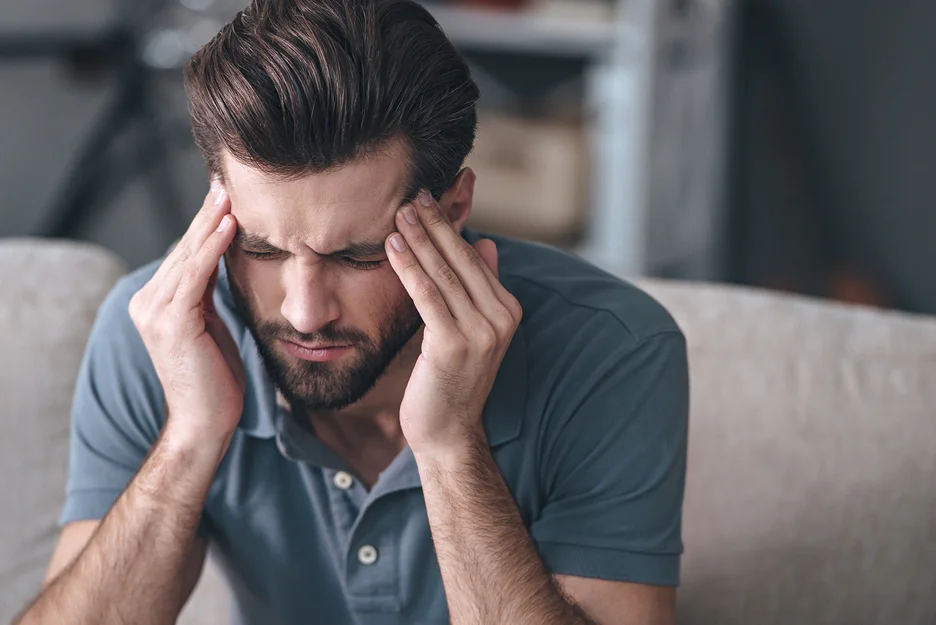
While generally well-tolerated when used responsibly under medical supervision, possible side effects from hCG in men may include:
- Gynecomastia – Breast enlargement or tenderness caused by hCG increasing testosterone conversion to estradiol. This is the most common adverse effect.
- Injection site reactions – Minor pain and redness may occur at injection locations. Rotating sites can minimize discomfort.
- Gastrointestinal effects – Nausea, vomiting, abdominal pain, and diarrhea have been reported in some patients.
- Neurological symptoms – Headaches, irritability, fatigue, and mood changes like depression linked to rapid testosterone fluctuation.
- Allergic reactions – Rash, itching, and swelling may rarely occur. Seeking prompt medical attention is advised for serious reactions.
- Cardiovascular issues – At very high doses, hCG may increase the risk of blood clots. Edema is also possible but uncommon.
By starting with low doses, ramping up gradually, and taking regular time off treatment, side effects can often be avoided.
FAQs
Do men have hCG naturally in their bodies?
Yes, men naturally produce small amounts of hCG to help produce progesterone and stimulate Leydig cells to synthesize testosterone. Normal hCG levels in men are generally less than 20 IU/L.
Do hCG injections for testosterone also aid in weight loss?
No, there is no good evidence that hCG injections aid in weight loss for men on testosterone replacement therapy. The FDA prohibits the sale of hCG for weight loss.
Is hCG safe for males with a history of prostate issues?
No, hCG is generally contraindicated for men with prostate cancer. However, with appropriate medical monitoring, testosterone replacement therapy appears safe for some men with prostate issues.
How does Pregnyl hCG for males differ from other hCG brands?
There is no significant difference between prescription hCG brands like Pregnyl and others. The FDA does not approve over-the-counter hCG products and should not be used.

